Sam Bradley, 83, shares his experience in a time of change in our country
All photos courtesy of Sam Bradley.
By Sam Bradley
My 13th birthday was on November 6, 1941. I was a student in the eighth grade of elementary school – there was no Junior High in those days.
December 7 was a Sunday. There was no TV in 1941, and we had listened to no radio programming that morning. I first heard about the Pearl Harbor attack when we left church, following Sunday services. The Kansas City Star had already printed an extra edition newspaper and boys outside the church were selling the papers.
A farm kid, I knew almost nothing about Pearl Harbor. I had recently seen newspaper stories about the unrest in the Pacific. I knew that some Americans were upset with the fact that we were selling steel to Japan, predicting it would come back to us in the form of exploding weapons. I was aware that Japanese diplomats were in Washington, supposedly trying to allay American’s fears.
I asked my father what news of the Pearl Harbor attack meant. He replied that it meant we were now at war.
The next day, George Clark, my school teacher, brought a radio to school and we spent most of the day listening to the news. We heard President Roosevelt make his famous “Day of Infamy” speech in which he announced that he was asking Congress to declare that a state of war existed between the United States and Japan. As I recall, he included all the Axis powers.
I had grown up in the Depression, an era when all people seemed to care about each other. The songs of the day I had heard offered lyrics such as “Brother, can you spare a dime…” and “May I sleep in your barn tonight, mister… it’s so cold lying out on the ground…” I was fond of heavyweight boxing champion Joe Louis, the epitome of sportsmanship and fairness. News that the Japanese had conducted a sneak attack on sleeping sailors aboard ships anchored at Pearl Harbor affected me deeply.
In the following days, tens of thousands of men flocked to recruiting stations to enlist in the military. I ached to join them and tried without success to figure how I could falsify my birth certificate and enlist.
There had been an isolationist movement in America before the Pearl Harbor attack. Aviator Charles Lindberg was a spokesman for the movement.
We had listened to Adolph Hitler’s ranting speeches on radio, all in German, punctuated by cheers, and sounding a bit frightening because of the echo effect from the trans-Atlantic cable.
My father was a World War I veteran. His older brother had died in combat. The cry to “Stay out of Europe’s war” must have impacted him, but I do not remember him expressing his feelings. After Pearl Harbor, however, that movement was diminished. It seemed that support of the war was unanimous.
Before long, many things were rationed… gasoline, tires, meats, sugar and many other food items. We were issued little books of ration stamps, necessary to buy any of those items. But, hardly anyone complained… the universal response was “Hey, there’s a war on!”
The Pearl Harbor attack taught us that we cannot assume that any nation can be trusted to observe international law. We learned that even a highly intelligent, civilized population, such as the Japanese, can be led into violent acts of war by a government intent upon conquest. It taught us that no amount of preparedness is too much.
And, among the civilian population of America, it taught us that despite our differences in political ideology, religion, or economic status, we have a common bond as American citizens. That we can all work together when the cause is just.
For those of us who experienced that era, it is impossible to understand why American men would one day flee to Canada to escape military service. It is impossible for us to understand why returning veterans would be vilified as were the veterans of Vietnam. And it is impossible to understand why the President of The United States would one day go abroad and apologize for America.
And, of course, it is sad to realize that to some the attack on Pearl Harbor would one day become little more than another story from history books.
When I finally reached the age of seventeen I immediately enlisted in the Army. When my father first saw me in uniform before my basic training, he reminded me that good men had died in the uniform of a United States soldier and that with respect to them, I should always wear that uniform with pride. Boy, did I ever!






















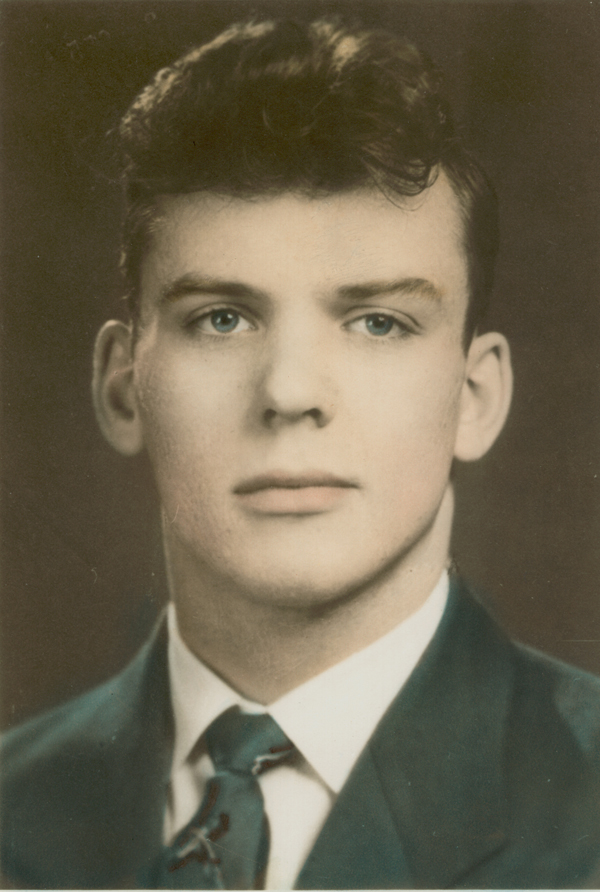
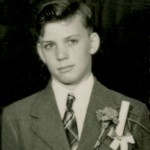
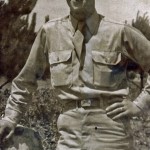
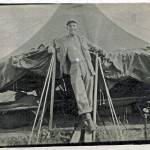
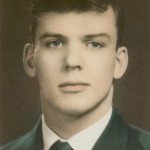
As a veteran of Vietnam, having served in combat there, I can only weep at how much my beloved country has degraded itself since the time of Sam Bradley. I was one of the vilified that Sam wrote about. I couldn’t wear my uniform off base at any time, for fear of being attacked by my own countrymen. We have made great strides since then in respecting our men and women in uniform, but we still lack the biggest thing that we had in WW2, and lost in Vietnam: we lack the national backbone to carry a conflict all the way to victory. Sam, I salute you and all your armed forces brothers and sisters of that era who regained the world’s freedom by going all the way to win the war.